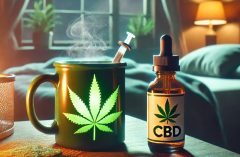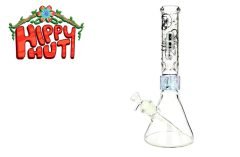Table of Contents
- 1 Understanding THC-Free Cannabis Products
- 2 Full Spectrum CBD as a THC-Free Alternative that Actually has Some Validity
- 3 Comparing the Effects of THC vs. CBD
- 4 Top THC-Free Options: CBD Oil, Hemp Flower, Delta-8
- 5 Frequently Asked Questions About THC-Free Marijuana Alternatives
- 6 Does THC-Free Cannabis Have a Future in Respected Medicine?
- 7 Conclusion – THC-Free Cannabis Products are NOT a Waste of Money
- 8 Conclusion
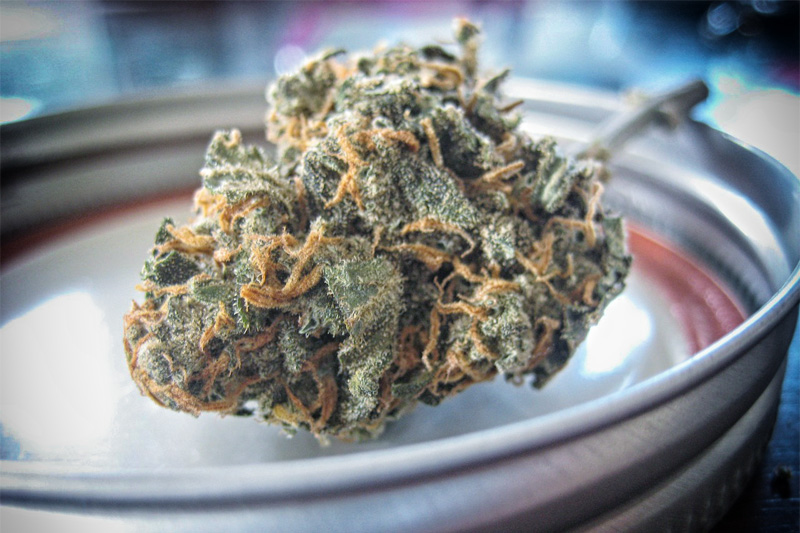
You’ve heard of weed that gives you a buzz without the high, right? Well, there are actually a bunch of interesting alternatives to regular marijuana that don’t contain THC. These products are marketed as THC-Free, providing the relaxing benefits of cannabis without the psychoactive effects.
But do they really stack up to the real thing? Let’s dig into the science behind these THC-free options to see if they can truly mimic marijuana’s mellowing magic. From hemp flower to synthetics like delta-8, we’ll explore the compounds that make weed “weed” and whether THC-free alternatives can fill the same role.
We’ll also discuss if these products are legal and safe. By the end, you’ll understand if weed without weed is worth a try or just a buzzkill.
Understanding THC-Free Cannabis Products
What Are They Really?
THC-free cannabis products claim to provide the benefits of marijuana without the high. But don’t be fooled by the marketing – these products contain little to no actual cannabis. Instead, they’re made from hemp, cannabis’ non-psychoactive cousin. Hemp contains minuscule amounts of THC, the compound in marijuana that gets you stoned.
Options Available
THC-free cannabis products come in all the same forms as regular weed – oils, capsules, gummies, creams, etc. The most popular are CBD oils and gummies. CBD, or cannabidiol, is a compound found in hemp and cannabis that’s believed to have some wellness benefits but without the intoxicating effects. Some products also contain other hemp compounds like CBG or CBC.
Questioning the Benefits
While proponents claim THC-free cannabis products can help with conditions like anxiety, sleep issues, and pain, the research is limited. CBD and other hemp extracts may have some therapeutic potential, but more studies are needed to fully understand their effects. And some products are more hype than substance.
The hemp plant itself has little nutritional value, so products like hemp teas or hemp protein powders won’t provide the benefits claimed by manufacturers. Sorry guys, it’s the truth as we know it in 2024.
The Takeaway
THC-free cannabis products likely won’t get you high or lead to legal trouble, but their potential benefits have been exaggerated. These products may be worth trying for some, but go in with realistic expectations. And be wary of health claims that sound too good to be true.
While hemp and its extracts are considered safe, the industry is still largely unregulated. Know what you’re really getting and buy from reputable brands.
Full Spectrum CBD as a THC-Free Alternative that Actually has Some Validity
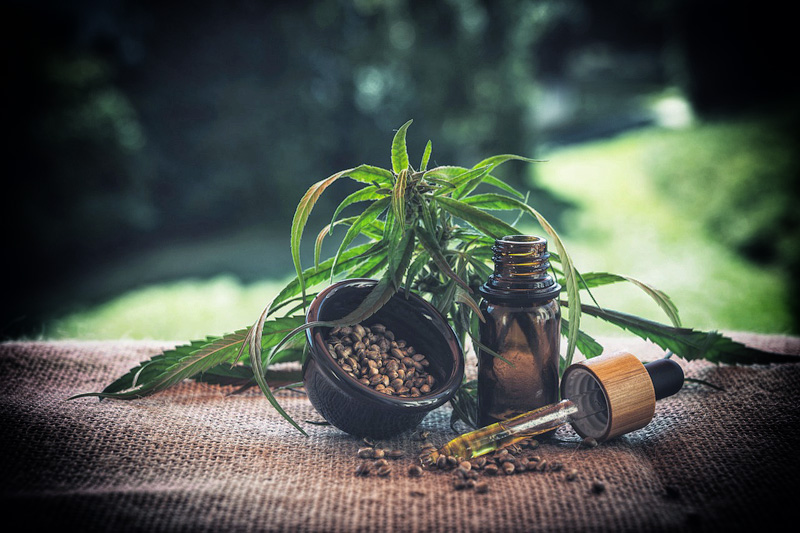
Full spectrum CBD contains all the cannabinoids, terpenes and flavonoids found in the hemp plant, including CBD. However, it contains less than 0.3% THC, so you get the benefits without the high.
Pain and Inflammation Relief
Full spectrum CBD can help reduce chronic pain and ease inflammation. It interacts with receptors in your brain and immune system to reduce pain signals and decrease inflammation. Many people use it for conditions like arthritis, injuries, and gastrointestinal issues.
Better Sleep
CBD also helps regulate your sleep-wake cycle. It relaxes your body and mind, making it easier to fall asleep and stay asleep. Research shows CBD may increase total sleep time and reduce insomnia. If you struggle with falling or staying asleep, full spectrum CBD could help you establish a healthy sleep pattern.
Improved Mood
CBD influences receptors involved in regulating mood and stress. It may help reduce symptoms of anxiety and depression and promote an overall sense of wellbeing. While CBD alone may not cure mental health conditions, research shows it can help support and supplement traditional treatments.
Full spectrum CBD provides real benefits for both the body and mind. With minimal THC, you can harness the power of the whole hemp plant without unwanted side effects. Look for high-quality, organic products and start with a low dose, increasing gradually to find the right amount for you. Full spectrum CBD could be the THC-free alternative you’ve been searching for.
Comparing the Effects of THC vs. CBD
CBD and THC are both compounds found in cannabis plants, but they have very different effects. THC is the main psychoactive compound in marijuana that produces the “high” sensation. CBD, on the other hand, does not make you feel intoxicated or alter your mindset.
THC Effects
When you consume THC, it activates your brain’s cannabinoid receptors, causing a release of dopamine that makes you feel good and alters your senses and perception of time. THC can also cause side effects like increased heart rate, coordination problems, and dry mouth. For some, THC may trigger anxiety or paranoia at high doses. The effects of THC typically last 2 to 3 hours.
CBD Effects
CBD indirectly interacts with cannabinoid receptors and influences other receptors in the brain that regulate mood and pain. The effects tend to be more subtle. CBD is non-intoxicating, so it won’t make you feel high or impair your cognition or motor functions. Many people report that CBD helps them feel relaxed, less anxious, and relieved of pain. The effects of CBD tend to last 6 to 8 hours.
In summary, while THC and CBD are both found in cannabis plants, they have quite different effects. THC produces an intoxicating high and can alter your mental state, while CBD does not. For those looking for the benefits of cannabis without the high, CBD may be an appealing option.
By understanding how these compounds differ, you can make an informed choice about which type of product is right for you based on the experience you’re looking for.
 Top THC-Free Options: CBD Oil, Hemp Flower, Delta-8
Top THC-Free Options: CBD Oil, Hemp Flower, Delta-8
CBD Oil
CBD oil is made from hemp plants that are high in CBD and low in THC. It comes in tincture form and can be taken sublingually (under the tongue), ingested, or used topically. CBD oil is great for relieving pain, reducing anxiety and stress, and promoting better sleep.
To use it, place a few drops under your tongue and hold for 30-60 seconds before swallowing. You can also add it to foods and drinks or apply it directly to your skin. Start with a low dose of 10-15 mg of CBD and increase gradually as needed.
Hemp Flower
Hemp flower refers to the buds of the hemp plant. When smoked or vaped, hemp flower can produce an effect similar to THC flower without the psychoactive high. Hemp flower is available as pre-rolls that can be smoked like joints or added to edibles like cookies and brownies.
The effects are felt almost immediately and include reduced pain and inflammation, improved mood, and better relaxation. Hemp flower may have trace amounts of THC, so check your local laws before purchasing.
Delta-8 THC
Delta-8 THC is a milder form of THC found in small amounts in hemp and cannabis. It is often extracted and concentrated to produce Delta-8 products like vape cartridges, tinctures, gummies, and flower. Delta-8 provides a gentle psychoactive effect and is said to produce a relaxed, euphoric high with little anxiety or paranoia.
It may help reduce pain, stimulate appetite, and promote sleep. The effects tend to be less potent than traditional THC products. As with hemp flower, Delta-8 may still have trace amounts of THC, so check your state’s laws regarding Delta-8 before using.
In summary, there are several promising THC-free alternatives for pain relief and recreation. CBD oil, hemp flower, and Delta-8 THC offer the potential benefits of the cannabis plant without the intense high. By starting low and going slow, you can find the option and dosage that’s right for you.
Frequently Asked Questions About THC-Free Marijuana Alternatives
What is CBD?
CBD, or cannabidiol, is a compound found in cannabis plants that provides therapeutic effects without the psychoactive high. CBD products are made from hemp, a type of cannabis plant that contains very little THC. Because they’re made from hemp, CBD products are legal and available for purchase online or in stores.
How does CBD work?
CBD interacts with your body’s endocannabinoid system, which helps regulate pain, mood, sleep, and more. CBD provides similar benefits as medical marijuana without the high because it doesn’t bind directly to CB1 receptors in the brain like THC does. Instead, it influences other receptors that interact with the endocannabinoid system.
Will CBD make me high?
No, CBD is non-psychoactive and will not make you high. CBD products contain little to no THC, the psychoactive compound in cannabis that produces a high feeling. CBD provides benefits like pain relief, reduced anxiety, and improved sleep without the intoxicating effects of THC.
Is CBD safe?
CBD is considered very safe, but some people may experience side effects like fatigue, diarrhea, changes in appetite, and interactions with certain medications. CBD may cause liver damage in high doses. You should always talk to your doctor before trying any new supplement.
Where can I buy CBD?
You can purchase CBD products online, in dispensaries, or in many wellness stores and pharmacies. Look for CBD that is made from U.S.-grown hemp and third-party tested for quality and potency. Higher quality CBD products will clearly state how much CBD is in each dose. Lower quality products may contain contaminants and little CBD.
Does THC-Free Cannabis Have a Future in Respected Medicine?
As the legalization of cannabis spreads, the medical community is slowly coming around to its potential health benefits. CBD, the non-psychoactive compound in cannabis, is gaining mainstream acceptance for conditions like chronic pain, anxiety, and epilepsy.
While THC provides the “high” recreational users seek, it can cause unwanted side effects like paranoia or anxiety in some. CBD oil and other THC-free cannabis products may offer a solution. Several studies show CBD can reduce anxiety, relieve pain, and decrease inflammation without altering one’s mental state.
Given CBD’s promising therapeutic potential, medical insurance coverage and physician adoption seem inevitable. As evidence builds, forward-thinking doctors are already prescribing CBD to help patients reduce opioid use or manage side effects of cancer treatments. However, CBD is still classified as a Schedule I controlled substance federally, limiting large-scale clinical research in the U.S.
Legalization of medical cannabis in 33 states suggests a tide is turning. With further studies confirming the medical benefits of CBD, as well as its superior safety profile compared to many prescription drugs, insurance companies and physicians may soon view it as irresponsible not to consider cannabis-based medicines.
While recreational cannabis will likely remain controversial, THC-free alternatives are poised to gain mainstream medical acceptance. The cannabis plant has a long history of therapeutic use, and as we rediscover its potential, CBD and other non-psychoactive cannabinoids could improve treatment options for millions suffering from chronic or life-threatening conditions.
The future of cannabis-based medicine is wide open.
Conclusion – THC-Free Cannabis Products are NOT a Waste of Money
While THC-free cannabis alternatives may seem like an oxymoron, these products are not merely a gimmick. For many, they offer a way to gain the benefits of cannabis without the high or legal issues that come with THC.
CBD, or cannabidiol, is a non-intoxicating compound found in cannabis that provides relief from inflammation, pain, anxiety, and more. CBD products like oils, capsules, and gummies are legal across the U.S. and popular for their therapeutic effects. Though CBD lacks the euphoric qualities of THC, many find it helps improve their quality of life in other ways.
CBG
CBG, or Cannabigerol, is another cannabis compound gaining attention for its potential medical benefits. Like CBD, CBG is non-psychoactive and shows promise for relieving pain, inflammation, and symptoms of anxiety or depression. CBG and CBD have different molecular structures, so some find CBG more effective for certain conditions. CBG products are still relatively new but worth exploring.
Terpenes
Terpenes are aromatic compounds found in cannabis and other plants that contribute to their distinctive smells. Certain terpenes like limonene and linalool are also known for their therapeutic properties. Terpene extracts and isolates allow you to benefit from these compounds without THC.
Some find terpene profiles that mimic certain cannabis strains can produce subtle relaxing or uplifting effects.
While THC-free alternatives may not provide an intoxicating high, their potential benefits are very real. For those looking to harness the power of cannabis in a purely therapeutic sense, these options deserve an open-minded try. They just might become your new source of relief or relaxation without the unwanted side effects of THC.
Conclusion
So in the end, while THC-free weed alternatives might seem like a solid option for some, the science shows they just don’t stack up to the real thing. Sure, they can provide some benefits, but you’ll be missing out on that sweet entourage effect that only comes from good ol’ regular cannabis.
Maybe one day scientists will figure out a way to get all the upsides without the high, but for now, your best bet is to enjoy the green goddess in her full, natural form – THC and all. Just remember to partake responsibly and you’ll be riding high and feeling fine.



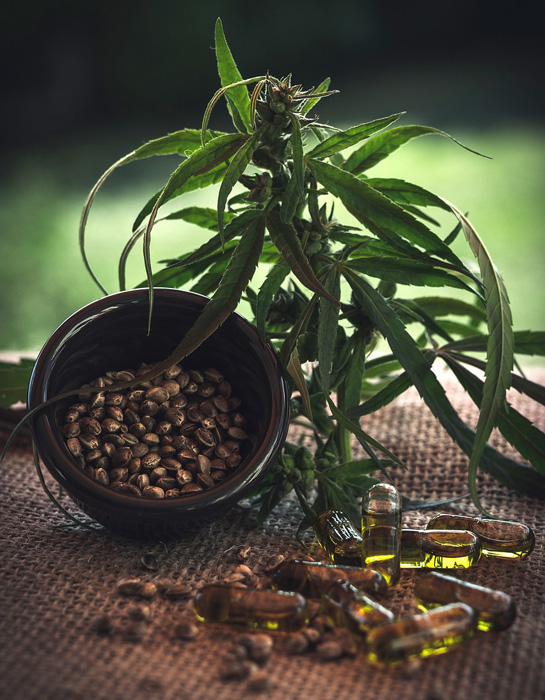 Top THC-Free Options: CBD Oil, Hemp Flower, Delta-8
Top THC-Free Options: CBD Oil, Hemp Flower, Delta-8